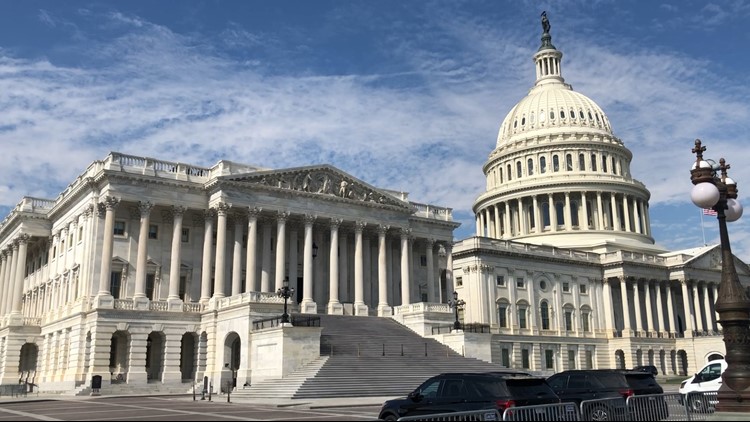GRAND RAPIDS, Mich. — The overturning of Roe v. Wade two years ago officially sent the issue of abortion access back to the states.
Here in Michigan, with the passage of Proposal 3 two years ago, access to an abortion is a constitutional right. The state can only regulate it after fetal viability, and cannot prohibit it if it is determined to be medically needed to protect a patient's life or physical or mental health.
But depending on the outcome of this year's election, some are concerned the potential of new federal restrictions could undo some of those protections.
Some viewers have asked us about this, given our state's new laws and constitutional language, and what the situation actually is with the law.
So, let's VERIFY!
THE QUESTION
Would a potential federal law restricting abortion apply to Michigan, despite our state constitution?
THE SOURCES
- Article VI of the U.S. Constitution
- Language in the Michigan Constitution, as passed by the state's voters through Proposal 3 of 2022
THE ANSWER
Yes, a federal law that complies with the U.S. Constitution can overrule conflicting state laws and constitutions.
In the context of our question, if a federal law restricting abortion were to be put into effect, assuming it survived any legal, constitutional challenges, the Michigan constitution likely wouldn't stop those restrictions. Further, any laws the state has passed that conflict with the federal law would be overruled.
WHAT WE FOUND
First, we looked at what exactly the U.S. Constitution actually says.
According to Article VI of the Constitution, "This Constitution, and the Laws of the United States which shall be made in Pursuance thereof; and all Treaties made, or which shall be made, under the Authority of the United States, shall be the supreme Law of the Land; and the Judges in every State shall be bound thereby, any Thing in the Constitution or Laws of any State to the Contrary notwithstanding."
This paragraph is often what's called the Supremacy Clause.
Archaic, 18th-century language aside, this says that, when determining what is legal, federal law, federal treaties and the U.S. Constitution can take precedence over state laws and constitutions that conflict with their statutes.
In essence, this works as a sort of tier system. Where the U.S. Constitution governs what federal laws Congress can pass, the Supremacy Clause says that, as long as those federal laws are constitutional, both those laws and the Constitution trump state constitutions, which serve as the higher power over state laws.
Beyond that, Proposal 3 in Michigan lays out what the state can do, but does not explicitly try to enforce what the federal government can do.
Given this, we can VERIFY, yes, if a federal law restricting abortion were to be put into effect, assuming it survived any legal, constitutional challenges, the Michigan constitution likely wouldn't stop those restrictions. Further, any laws the state has passed that conflict with the federal law would be overruled.
►Make it easy to keep up to date with more stories like this. Download the 13 ON YOUR SIDE app now.
Have a news tip? Email news@13onyourside.com, visit our Facebook page or Twitter. Subscribe to our YouTube channel.
Watch 13 ON YOUR SIDE for free on Roku, Amazon Fire TV Stick, Apple TV and on your phone.



